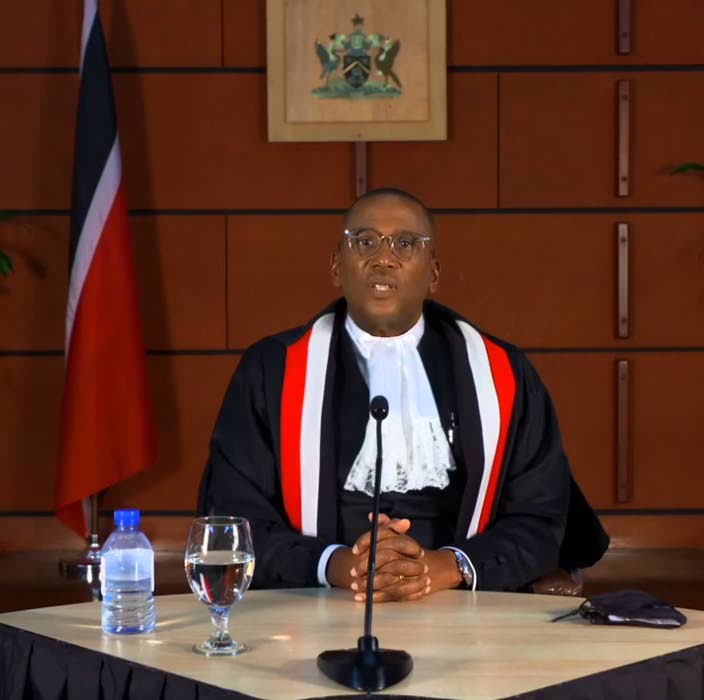Copyright newsday

After nearly two decades leading the Judiciary, Chief Justice Ivor Archie has officially given his date of departure. He officially retires on October 22. In a statement on October 21, Archie said, “My fellow citizens, it will be recalled that in my address at the commemoration of the 2025-2026 law term, I indicated that my departure from the judiciary was imminent. “I wish to advise that that time has arrived and today I indicated to the acting President that I will retire on October 22. “Trinidad and Tobago has been good to me and I hope that I have been equally good to my country. It has been an honour to serve. I wish my successor every success in the period ahead. “May God guide his or her path as this new endeavour is commenced.” Archie’s statement was e-mailed to newsrooms just after 6 pm. On September 16, Archie had announced he intended to retire before reaching the mandatory age limit. Archie, 65, said he had always planned to leave at that age, the retirement threshold when he was appointed chief justice in 2008. “That was what I envisaged, and that is what I prepared for,” he told judges, judicial staff and politicians. The retirement age for judges was raised to 70 in 2020. At the time, Archie gave no exact date for his departure, he said he chose to make the announcement now. “It is also important to me to find new challenges and opportunities and opportunities to grow. “Chief Justice is what I do, not who I am. One must have a life beyond chief justice,” he said. “High public office requires sacrifice of family, self, and the freedom to pursue other avenues of interest. And, while it is a privilege to serve, each of us must decide about what we want for ourselves at any given stage in life. I have seen my life journey with clarity and perspective.” Archie, who became the eighth and youngest chief justice on January 24, 2008, reflected on leadership and succession. “From a corporate governance standpoint, no matter how innovative a leader may be, an infusion of fresh ideas from a new leader with different strengths and weaknesses is desirable from time to time,” he said. “The office of Chief Justice is not private property or something you hold or cling to. It is a sacred baton held in trust for one’s successors and the nation. I am but a single runner in a never-ending relay, and the baton must be passed at some time … The race is compromised if you don’t pass.” Archie said his decision was deliberate: “I have decided to retire at the time of my own choosing and not to wait until I reach the age of 70. There will always be unfinished business, no matter when I leave.” He added, “Transparency and seamless processes are an important part of good corporate governance. It requires careful planning and preparation.” Archie said his successor will be chosen by the President in due course. The President appoints the Chief Justice after consultation with the Prime Minister and Opposition Leader. Archie assured, “The Judiciary will be in good hands because there is more than a critical mass of people who understand and are committed to our vision and mission.” He thanked his colleagues, staff, and family, saying, “The families of public figures suffer much more than we do…They give up the time and the attention that they are due and absorb the collateral damage from the slings and arrows that are aimed at us. This can be a cruel society … and I have no idea how I would have managed without them. Finally, I thank God for the privilege of serving. It is an honour.” Archie pledged to support his successor without interference. “The next chief justice will have my full support, but no unsolicited advice.” During his tenure, Archie oversaw judicial reforms, including expanded use of information technology, greater stakeholder collaboration, customer service improvements, and initiatives to modernise the Judiciary. His leadership, however, was also marred by controversy, including legal challenges and allegations of misconduct raised by the Law Association in 2018, and criticism from the Privy Council in 2025 over his handling of the Marcia Ayers-Caesar judicial appointment debacle. Born in Tobago, Archie attended Scarborough Anglican Boys’ School, Bishop’s High School, and St Mary’s College before earning a degree in mechanical engineering from the University of the West Indies in 1980. He later studied law at the University of Southampton, graduating in 1984, and obtained his Legal Education Certificate from Hugh Wooding Law School. He was admitted to the Bar in Trinidad and Tobago and practised locally and in the Cayman Islands, Turks and Caicos Islands, and served as solicitor general and acting attorney general in the Cayman Islands before being appointed a puisne judge in 1998. He became a Court of Appeal judge in 2004. Outside the Bench, Archie is active in church ministry, sports, and music, including as a singer with the Lydians choir.



